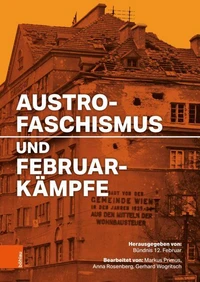Der Radsport leistete für das verspätete »nation-building« Österreichs nach 1945 einen wichtigen Beitrag. Bei der Herausbildung von Narrativen zu »Heimat« , »Staat« und »Nation« kam dem Sport eine wesentliche Bedeutung zu. Weil der Wiener Fußball und der alpine Skisport eher Gegensätzlichkeiten betonten, bot sich der Radsport als verbindendes Element an, der in den Nachkriegsjahren zum »Volkssport« mit hohem emotionalen Aktivierungspotenzial avancierte.
Die »Österreich-Radrundfahrt« ermöglichte es, das Territorium
des Landes mit dem Finger auf der Landkarte zu erfahren. Anhand der Geschichte der Tour d'Autriche und ihrer Heldenfiguren werden in diesem Buch Kontinuitäten und Brüche zu Erster Republik, Austrofaschismus und NS-Zeit sowie die Beiträge des Radsports zur Nationswerdung beleuchtet.
Bicycle racing made an important contribution to Austria's belated nation-building after 1945.
Sport played an integral role in the formation of narratives about "homeland", "state" and "nation". Because Viennese soccer and alpine skiing tended to emphasize opposites, cycling offered itself as a unifying element, becoming a "people's sport" with high emotional activation potential in the post-war years. The "Österreich-Radrundfahrt" made it possible to experience the territory of the country with one's finger on the map.
Based on the history of the Tour d`Autriche and its heroic figures, this book illuminates continuities and ruptures with the First Republic, Austrofascism, and the Nazi era, as well as the contributions of cycling to nation-building.
Der Radsport leistete für das verspätete »nation-building« Österreichs nach 1945 einen wichtigen Beitrag. Bei der Herausbildung von Narrativen zu »Heimat« , »Staat« und »Nation« kam dem Sport eine wesentliche Bedeutung zu. Weil der Wiener Fußball und der alpine Skisport eher Gegensätzlichkeiten betonten, bot sich der Radsport als verbindendes Element an, der in den Nachkriegsjahren zum »Volkssport« mit hohem emotionalen Aktivierungspotenzial avancierte.
Die »Österreich-Radrundfahrt« ermöglichte es, das Territorium
des Landes mit dem Finger auf der Landkarte zu erfahren. Anhand der Geschichte der Tour d'Autriche und ihrer Heldenfiguren werden in diesem Buch Kontinuitäten und Brüche zu Erster Republik, Austrofaschismus und NS-Zeit sowie die Beiträge des Radsports zur Nationswerdung beleuchtet.
Bicycle racing made an important contribution to Austria's belated nation-building after 1945.
Sport played an integral role in the formation of narratives about "homeland", "state" and "nation". Because Viennese soccer and alpine skiing tended to emphasize opposites, cycling offered itself as a unifying element, becoming a "people's sport" with high emotional activation potential in the post-war years. The "Österreich-Radrundfahrt" made it possible to experience the territory of the country with one's finger on the map.
Based on the history of the Tour d`Autriche and its heroic figures, this book illuminates continuities and ruptures with the First Republic, Austrofascism, and the Nazi era, as well as the contributions of cycling to nation-building.

 , qui est-ce ?
, qui est-ce ?